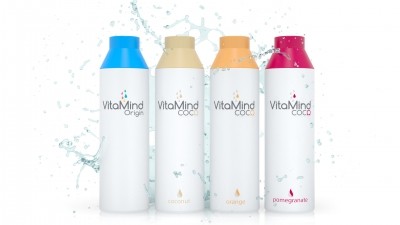Study links SDA, ALA to cognitive support, health of region in cerebral cortex

The study, which was conducted at the University of Illinois Urbana-Champaign, was seeking to parse out what mechanism accounts for the widely supported observation that lower amounts of omega-3s are correlated with declines in fluid intelligence in older people.
The researchers looked at the blood levels of six different omega-3s in 100 ‘cognitively intact’ subjects ranging from 65 to 75 years of age. The omega-3s measured were ALA, SDA (steriodonic acid), ETE (eicosatrienoic acid), EPA, DHA and DPA. They also measured the structural integrity of the frontoparietal cortex structure within the brain.
Fluid intelligence is the ability of the brain to cope with new, novel situations via a process of inductive and deductive reasoning. It is separate from what is termed ‘crystallized’ intelligence, i.e. the sum of one’s knowledge and experience. Fluid intelligence has been linked with the frontoparietal cortex (FPC) region of the brain. A decline in fluid intelligence has been identified as one of the most debilitating aspects of dementia in older adults.
First time looking at precursor omega-3s
While linking the longer chain omega-3s—EPA, DPA and DHA—to performance on intelligence tests is nothing new, the researchers said that this was the first study to look at whether levels of their precursors, ALA and its downstream metabolites SDA and ETE, were an important part of this effect.
“Serum concentration of EPA, DPA n-3, and DHA has been linked to better performance on tests of frontal function in older adults; however, to our knowledge,no study has examined the effects of ALA or its immediate downstream products, including SDA and ETE, on intelligence or tests of frontal function in older adults. Importantly, ALA in serum,red blood cell phospholipids,and plasmahas been linked to risk for dementia. Decline in fluid intelligence is a key feature of the cognitive changes that precede dementia,thus ALA and its immediate downstream products, including SDA and ETE, could serve as predictive biomarkers for fluid intelligence,”they said.
Study details
The researchers recruited 122 ‘cognitively intact’ older adults between the ages of 65 and 75 out of which 100 were chosen for the study. The blood serum levels of the various omega-3s were measured, and the subjects’ cognitive performance was measured via the Wechsler Abbreviated Scale of Intelligence – second edition (WASI-II). The volume of the FPC regions of the subjects’ brains were measure via MRI scans. A statistical analysis was performance to correlate the three legs of this stool. The researchers found that one pattern of omega-3s with higher levels of ALA, SDA and ETE, corresponded to stronger other legs of the stool, i.e. better WASI scores and larger FPC structures.
“This report identifies a novel nutritional biomarker for fluid intelligence as well as a novel mediatory relationship between n-3 PUFAs, FPC structure, and fluid intelligence,”the researchers wrote.
ALA has gotten something of a bad rap among omega-3 researchers in that it was viewed as an inefficient way to boost blood levels of the ‘important’ omega 3s EPA and DHA. The conversion ratio is low, and is further depressed by too much saturated fat in the diet, a common feature of Western eating patterns. A 1998 Swiss study on the subject concluded “The use of ALA labelled with radioisotopes suggested that with a background diet high in saturated fat conversion to long-chain metabolites is approximately 6% for EPA and 3.8% for DHA. With a diet rich in n-6 PUFA, conversion is reduced by 40 to 50%.”
Important by themselves?
But this latest study from Illinois opens the possibility that these shorter chain omega-3s—ALA (18:3n-2), SDA (18:4n-3) and ETE (20:3n-3)—have important health effects all their own, irrespective of their position in the metabolic pathway toward EPA. This was welcome news for Greg Cumberford, vice president of strategic initiatives of Nature’s Crops International, the company that is developing Ahiflower oil, which the company bills as the richest plant source of SDA.
“This study seems to be a novel finding,”Cumberford told NutraIngredients-USA. “They found that better fluid intelligence was predicted by higher levels of SDA, ALA and ETE, which is a metabolite of SDA.”
The study’s approach was so new that has yet to be incorporated into the Ahiflower marketing effort. Up to now the company has been touting SDA’s heightened ability to convert to EPA when compared to ALA. This makes it reasonable that a consumer who, say, was particularly concerned about vegetarianism, could get adequate amounts of EPA in the diet just by consuming a plant oil (the argument against ALA being that with the conversion ratio so low, you’d never be able to eat enough).
“They are assigning that complex of the three fatty acids as a biomarker of fluid intelligence,” Cumberford said. Cumberford said future research would need to look at whether the precursors are neuroprotective in and of themselves, or whether their higher levels are signs of a more robust pathway toward EPA and the other omega-3s.
Source: Nutritional Neuroscience
“Determinants of fluid intelligence in healthy aging: Omega-3 polyunsaturated fatty acid status and frontoparietal cortex structure”
2017 May 11:1-10. doi: 10.1080/1028415X.2017.1324357. [Epub ahead of print]
Authors: Zamroziewicz MK, Paul EJ, Zwilling CE, Barbey AK.
















